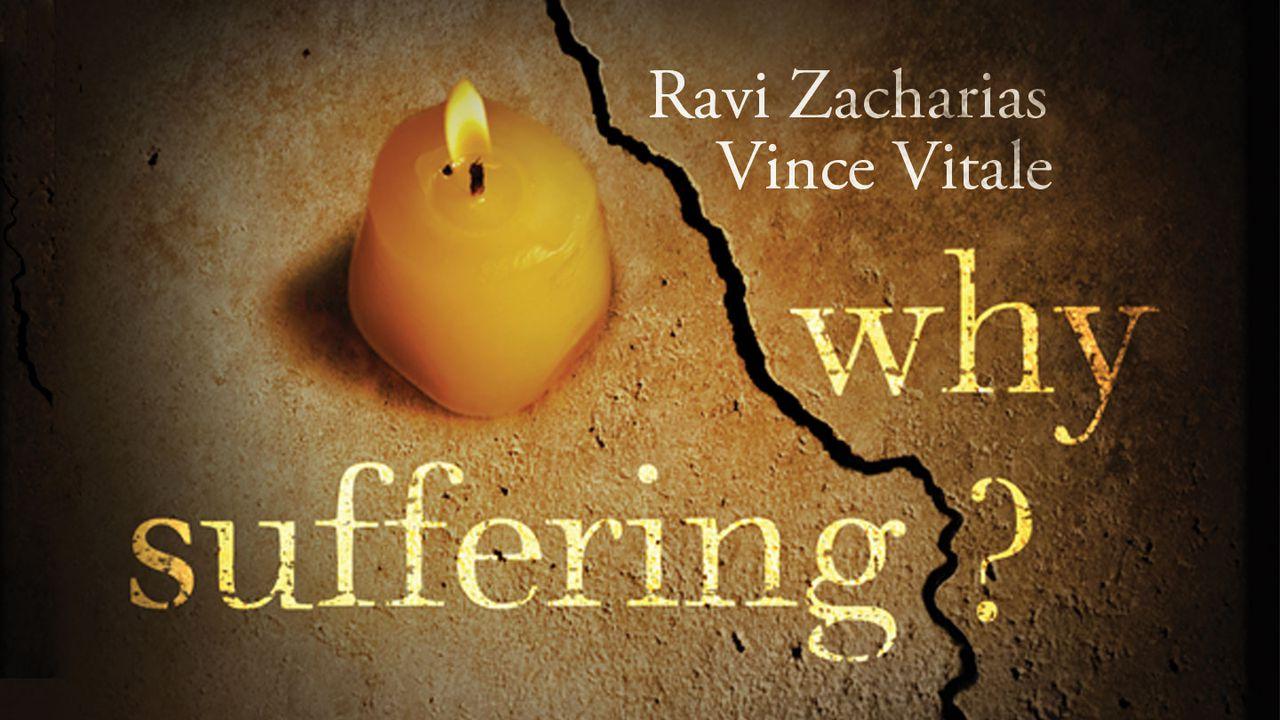Why Suffering預覽

Freedom, Suffering, and Grace
When a newspaper posed the question “What’s wrong with the world?”, G. K. Chesterton supposedly offered a very concise response: “I am.” If we want to honestly ask the question “Why suffering?”, we will need to start with ourselves.
The response of freedom highlights the culpability of humanity for the suffering of this world. Free choices against God, free choices against each other, choosing hate or indifference toward those we were created to love and defend—this is the root of so much of the brokenness in which we find ourselves and that we find in ourselves. This is the testimony of the Bible from its very first pages; right from the start Christianity confronts the challenge of suffering head on.
In the opening chapters of Genesis, we find a story of people who deep in their hearts know God, and also know what He has asked of them. But then they hear this voice in their ears: “Did God really say, ‘You must not eat from any tree in the garden?’” They begin to doubt that God knows what’s best for them; they begin to doubt that He is for them; ultimately they begin to doubt what He has actually said—His word.
And then they sin. They do what they know deep down they shouldn’t do. Not a big sin, just eating a piece of fruit that they were told not to eat. No big deal, right?
But it starts them down a path. First we’re told that they felt shame. They were convinced that God wouldn’t want anything to do with them anymore, and so they hid themselves from God. Maybe some of us can relate to that.
Then they began accusing each other. Adam pointed at Eve and said “She did it!” (in essence pointing his finger at God as well by referring to Eve as “the woman you put here with me” (Gen. 3:12)). In turn, Eve pointed at the serpent and said “He did it!”
From temptation to doubt to disobedience to shame to hiding to finger-pointing to suffering. People sometimes spend so much time debating what the beginning of Genesis says about science, and those are important questions. But we must be wary of the tendency to avoid facing what else the text says. Is there really a question about whether this story speaks the truth about the human heart?
But here is the most amazing part of the Fall story. The first persons have rejected God. They have decided they would rather be their own gods. And how does God respond? He goes looking for them; He pursues them; He calls out to them, “Where are you?”
Then, after their first interaction with God after they had sinned, Adam names his wife “Eve.” It’s a name of great honor. It’s often understood to mean “breath” or “life,” and it’s given to her “because she would become the mother of all the living” (Gen. 3:20). Symbolically, Eve’s name connects her with God’s breathing of life into Adam. And even the spellings of the names Eve and Yahweh show similarities in the original Hebrew.
Even amidst the consequences of the Fall, how generous and loving must God’s interaction with them have been for Adam to choose that name for his wife? And then we’re told that God “made garments of skin for Adam and [Eve].” In an ancient Middle Eastern culture, this is the exact opposite of what should have happened. Their clothes should have been torn to symbolize their disgrace. Instead, God made garments for them. What’s more, the text gives this beautiful detail: “and [He] clothed them.”
God dressed Adam and Eve so that they would not be ashamed, foreshadowing that one day He would clothe us in Christ (Gal. 3:27), with the best robe (Luke 15:22), with power from on high (Luke 24:49). Right from the very beginning, it’s in God’s response to suffering that we see the love of God most clearly, a love that refuses to give up on us even when we cause great suffering.
Reflection Questions
- Adam and Eve rebelled against God when they sinned, and yet He lovingly clothed and provided for them afterward. What does this suggest about the depths of God’s love? Read Romans 8:38–39. Can anything exclude you from God’s love?
- Read Romans 13:11–14. What does it mean to “clothe yourselves with the Lord Jesus Christ”? In light of God’s commands and human freedom, what should this look like when lived out?
Bible Verses
- Genesis 3
- Luke 15:22
- Luke 24:49
- Galatians 3:27
聖經
關於此計劃

This study is based on the book WHY SUFFERING? written by Christian apologist Ravi Zacharias and Vince Vitale, Dean of the Zacharias Institute, It is written for the Christian struggling for an answer, the seeker who thinks suffering disproves God’s existence, and the sufferer who needs a glimpse of a loving God.
More









